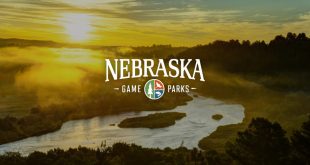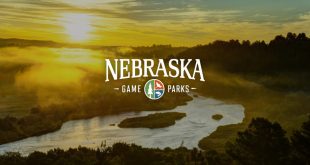LINCOLN, Neb. — Nebraska wildlife officials say conditions throughout much of the state are suitable for the spread of deadly viral diseases among big game populations and are asking the public to report unexplained death or illnesses of deer, pronghorn, elk and bighorn sheep.
Epizootic hemorrhagic disease, or EHD, often causes high fever, internal bleeding, swelling, lesions, lethargy, increased heart rate, dehydration, salivation, incoordination and loss of fear of humans. The symptoms and spread are similar to bluetongue disease, another disorder that can kill certain wildlife and domestic livestock.
Both are labeled hemorrhagic diseases and are indistinguishable without laboratory analysis. While the diseases do not affect humans, they can be destructive to big game populations.
“We’ve started to see a little bit of exposure already this year,” said Todd Nordeen, big game research and disease program manager for the Nebraska Game and Parks Commission.
The diseases are most prevalent in late summer until the first frost. For both illnesses, certain tiny midges or gnats bite a host and move the virus to nearby animals. When animals congregate at water during drought, the insects have potential to spread the virus to more animals. Additionally, infected animals often seek water for relief and die in or near it.
“In 2012, when we had such severe drought conditions, we saw this and lost about 50 percent of our whitetail population in some areas of the state,” Nordeen said. “It can be pretty devastating during drought conditions. Hopefully we won’t see it that extreme this year.”
The latest report from the U.S. Drought Monitor dated Aug. 24 shows more than 86 percent of Nebraska ranging from abnormally dry to extreme drought.
Observations of unhealthy big game animals or unexplained deaths should be reported to the nearest Game and Parks office. Locations include Alliance, Bassett, Kearney, Gretna, North Platte, Lincoln, Omaha and Norfolk.
“Of course, any time of year, we want to hear from the public about anything they’re observing with the wildlife,” Nordeen said. “It’s especially important this time of year when we have these diseases and viruses out there.”
 Nebraskaland Magazine
Nebraskaland Magazine

